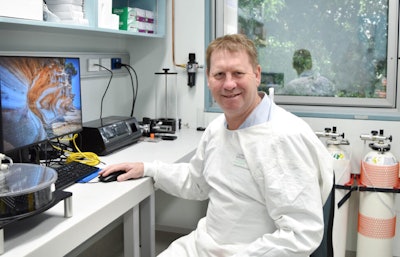
A study led by the Centenary Institute at the University of Technology Sydney and the Hunter Medical Research Institute has identified a distinct gut bacteria associated with COPD and highlighted the potential effectiveness of fecal microbiota transfer (FMT) as a COPD treatment.
Senior study author Phil Hansbro, PhD, director of the Centenary UTS Center for Inflammation said the study also demonstrated improved outcomes for COPD patients through nutritional interventions tailored to the microorganisms found in the gut.
“The gut hosts the largest and most diverse microbiome in the body that, depending on its composition, can either trigger or inhibit inflammation, including the lung,” he said. “We were able to identify specific gut bacteria associated with the development of COPD in our mouse models, confirming the complex interplay between the gastrointestinal microbiome, inflammation and lung disease.”
Researchers used FMT to transfer beneficial gut microorganisms between healthy mice and mice with COPD, which helped reduce lung inflammation and improved breathing, said Dr. Hansbro.
“This suggests a potential therapeutic effect of these specific gut microbiomes in mitigating COPD-related issues,” he said.
Kurtis Budden, PhD, lead study author and researcher from the Hunter Medical Research Institute, said the study also found that enhancing the diet of a small select group of human patients with COPD through dietary fiber supplementation led to noticeable improvements in disease symptoms.






















